Balloon Care Disclaimer
Balloon Care Disclaimer
We use only the best quality balloons. However, because of the fragile nature of balloon products we will not be held responsible for the condition of such items after they have been delivered in good condition. This includes but is not limited to damage, leakage, burst, improperly handled/transported/stored items, exposure to heat or cold temperatures, exposure to outdoor elements, sharp edges items etc.
Helium Balloon Care Instructions
- Helium is sensitive to temperature changes.
- Cold or very cold air causes helium to shrink, which makes the balloons appear to deflate and reduces the size and float time. To remedy this, moving the balloons to a warmer room will allow the helium to re-expand and appear full again.
- Hot or very hot air causes the helium to over expand and the balloons to burst. Avoid hot places/surfaces like in the trunk of a car or against hot metal.
- For helium balloons to last longer, putting them in cooler places around 68 degrees Fahrenheit is recommended.
- Avoid direct sunlight even through windows, as balloons may pop within an hour.
- Exposed to outdoor conditions, balloons will oxidize causing clear balloons to become cloudy quickly.
- Balloons will pop/deflate when it rains so always find shelter.
- Do not leave balloons in a hot car for an extended period. The heat and confined area will cause the balloons to deflate faster.
- Placing balloons near strong air flow from a fan, air vent, or wind increases the speed at which the helium molecules escape through the wall of the balloon, resulting in reduced floating time.
- Balloons for ceilings: Lights, paint textures, irregular surfaces, and even static can all pop balloons. If you are planning on placing your balloons on the ceiling, ensure that you test this first.
- Helium is not toxic or flammable, however inhaling helium can result in loss of consciousness due to insufficient oxygen.
- Uninflated or burst balloons can present a choking hazard and should never be left with children without supervision. Store balloons away from pets to ensure that they cannot get themselves tangled with balloon ribbons or accidentally ingest popped balloons and their decorative contents such as confetti, feathers, or other materials.
- Never release balloons into the environment. To dispose of the balloons at the end of their life you can either recycle your balloons through our service or deflate them and include them in your normal trash pickup.

8x8 Greenery Wall-$150
Lush backdrop rental perfect for photo ops or event décor. Includes install and takedown.
Balloons and accents sold separately

Just in! Floral Topper Add-On-$95
Elevate your greenery wall rental with a lush silk floral topper featuring cascading white florals, ivory roses, and soft blush accents.
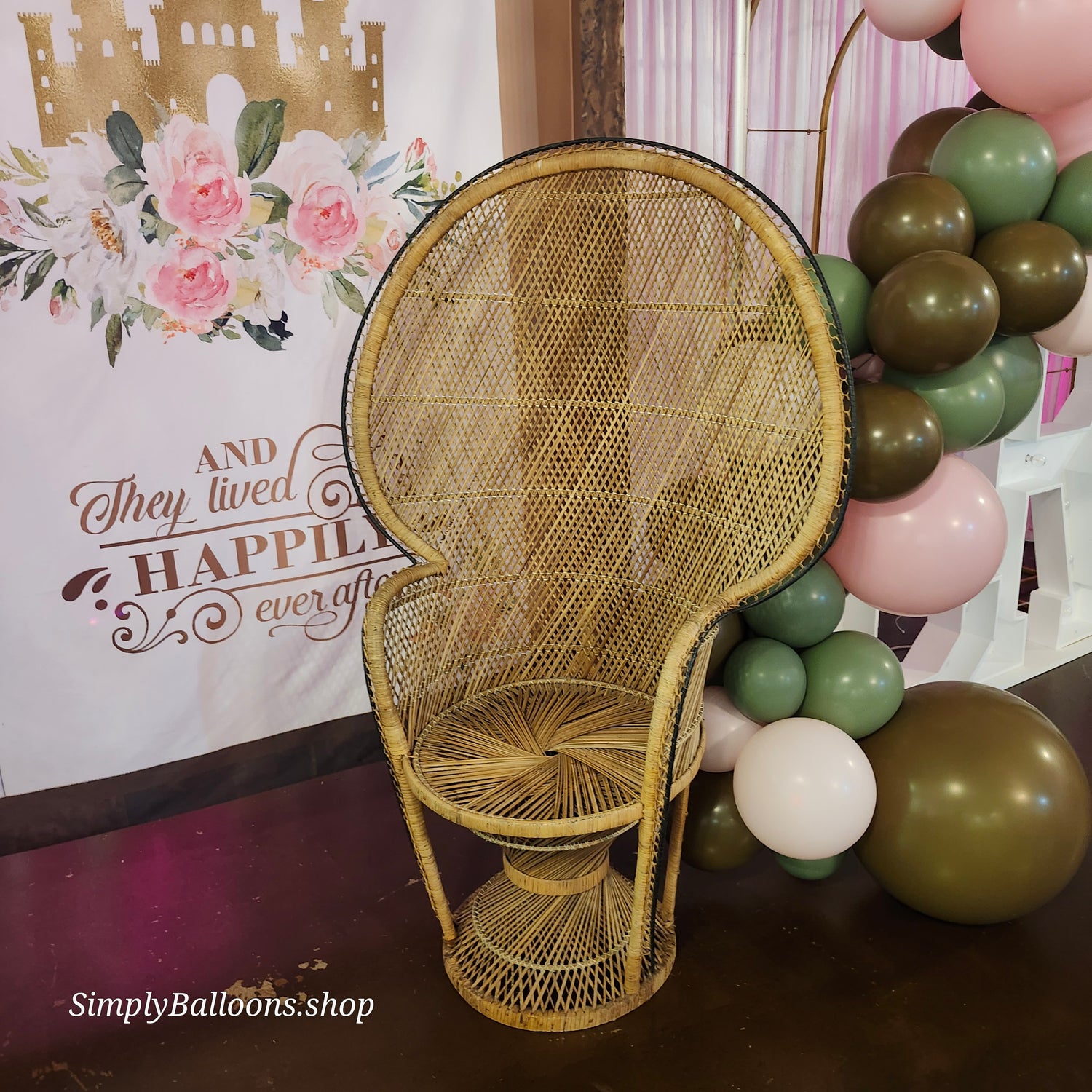
Peacock Chair-$75
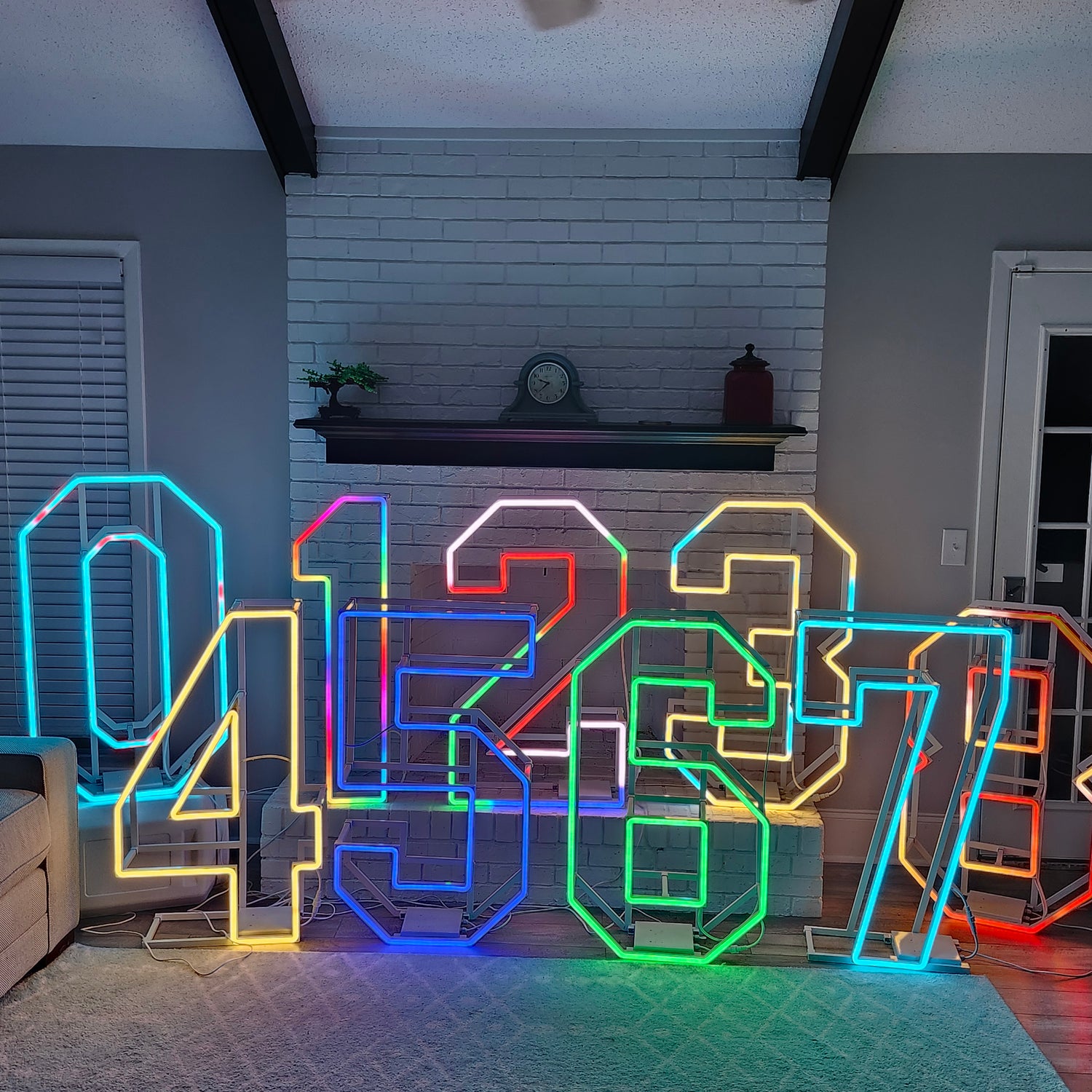
LED Marquee Numbers-$50
3ft light-up numbers with color-changing modes, fun patterns, and music sync! Perfect for birthdays, grads, or milestone events.
+ Add balloon fill for $25
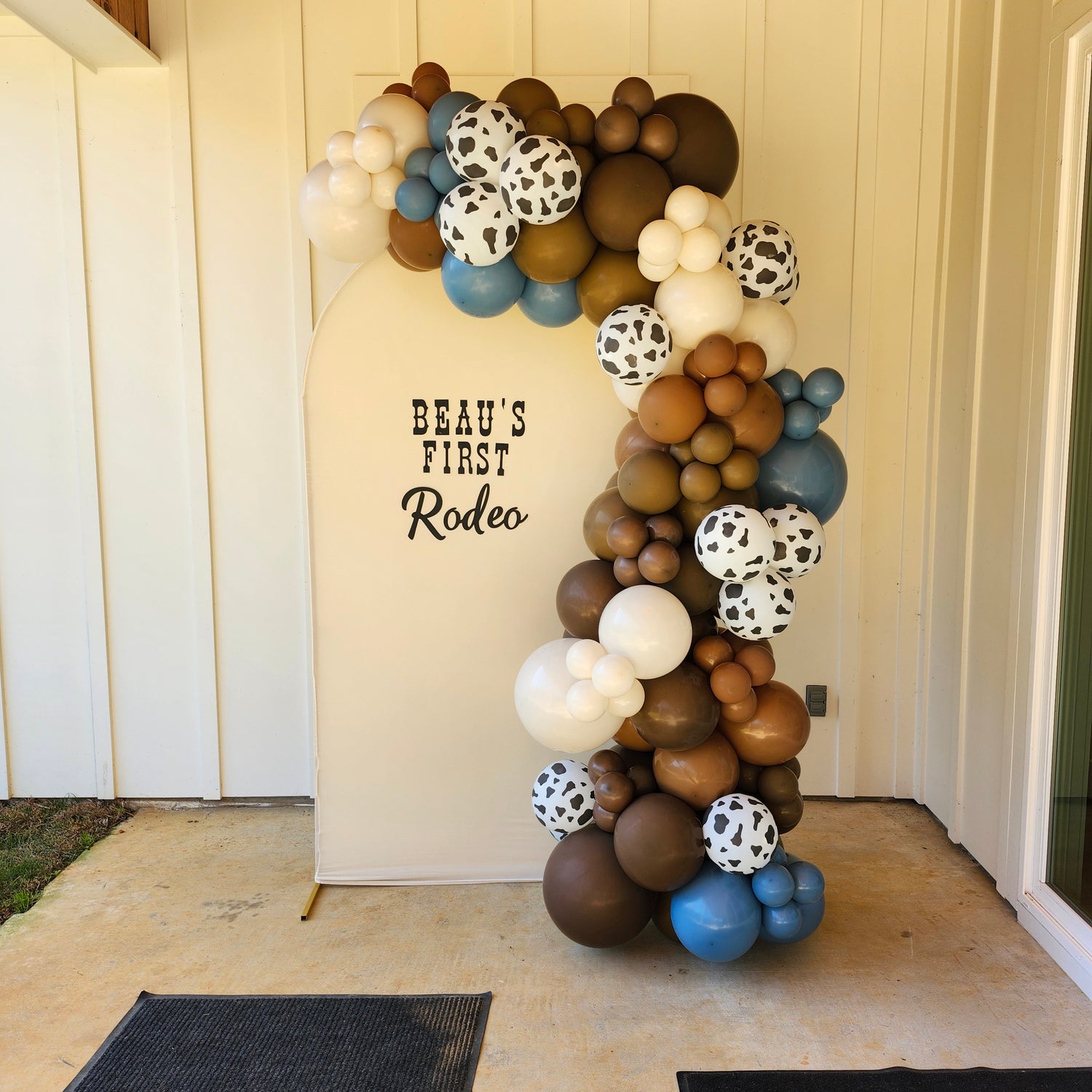
Arch Backdrop- $20
Includes setup and takedown. Available in Cream, Pastel Pink, White, Blue, and Blue Plaid.
We can special order any color you want for an additional $10 if we are given at least 2 weeks notice.
Custom Signs can be added for an additional $30 with at least 7 days notice.
Balloons and accents sold separately

Curtains + Backdrop Stand-$75
Includes setup and takedown. Available in purple, red, yellow, blue, black, beige, or any combo.
Balloons and accents sold separately
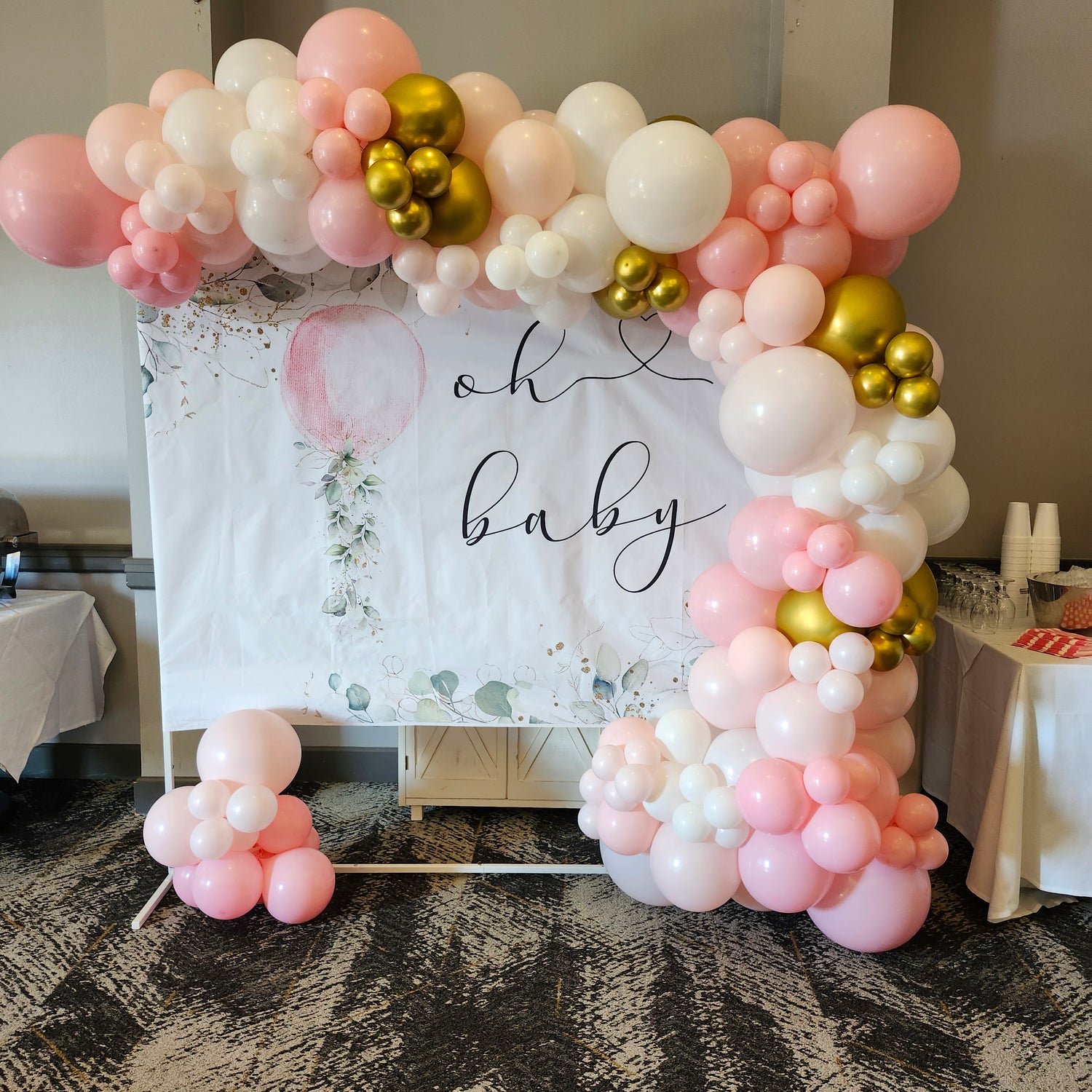
Light Weight Backdrop Stands -$30
Includes setup and takedown. We can hang your backdrop for you on our stand. We have two available. One is Adjustable sized and Black, the other is a 6.6x6.6 white square.
Balloons and accents sold separately
Services
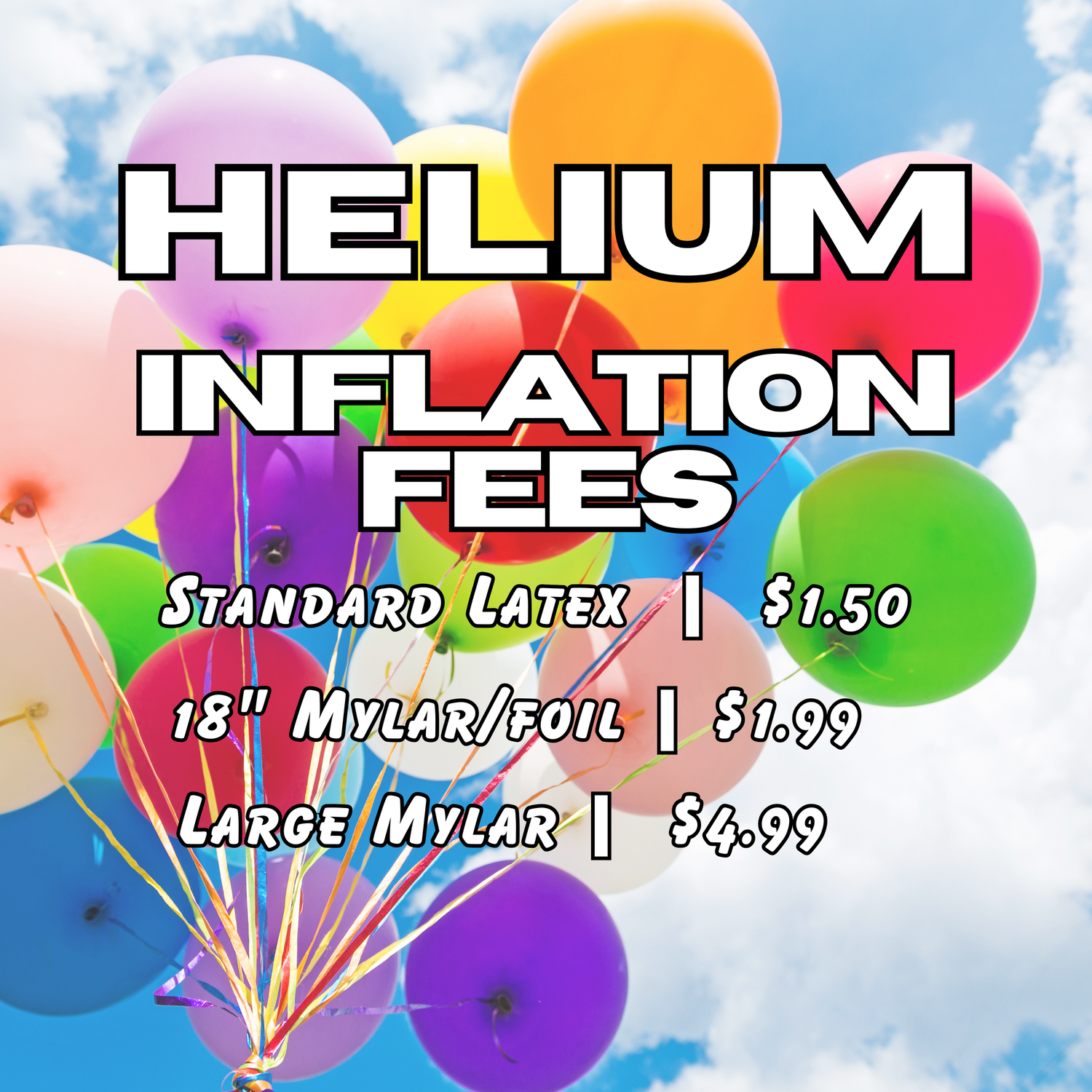
🎈 We offer helium inflation for your balloons!
You can either:
- Drop off your balloons in advance by scheduling an appointment, or
- Have them inflated on the spot—just book a time that works for you.
Our office is conveniently located at:
503 Avalon Way, Suite A, Brandon, MS 39047.
✨ Appointments ensure we’re ready to serve you promptly!
Even More Coming Soon!
Check back in with us! We will be adding more Rentals real soon!
Ready to bring your vision to life?
Submit an order request below — it’s quick and easy!
📞 Need something within the next 7 days?
Call or text us at 769-261-3912 so we can assist you right away.
